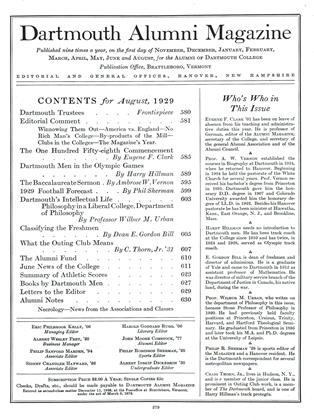The excitement in front of the Stadium began at 2 p.m., although the race did not start until 3. According to a rough estimate fully 60,000 people entered the Stadium and fully another 60,000 congregated on the hills and near the entrance to the enclosure. It was 5.30 p.m. when the games in the Stadium had all taken place. The first rumor of the loss of the discus event began to spread general sadness, and disgust was apparent on faces of those present, those faces that were so gay a short time ago. I wondered what was happening in the Marathon. The Greek official automobile arrived suddenly in the midst of the crowd and people were turning their eyes toward the occupants. All were trying to read their thoughts. Unfortunately the expressions on their faces showed emotions other than joy. They were talking loudly with the members of the committee, whose faces became gradually very melancholic. "All is through," said some; It is gone; we have lost it,'' cried out others. The news fell upon the ears of the vast crowd like the report of bursting shell. The whole Stadium realized at once that a for- eigner was coming in first. Abject sorrow was depicted on the faces of all. The committee announced that a Canadian was leading the Marathon by a kilometer and that a Greek followed.
Hope came back again. "Courage, boys," shouted the crowds; "it may be that he will fall down like Flak." "Yes, oh yes; he will fall down going up the hill," said others.
The crowds can read the bitter truth, in the expression of the committee. But no one wants to believe it, no one wants to accept it. The national pride is in danger. The angel of Marathon must be a Greek, like the one who announced the victory of Miltiades, and in the memory of all the victory of Louis is revived. (Louis was the Greek winner of the Marathon in 1896.)
"He is coming! He is coming!" The crowds outside of the Stadium are shouting. Whistles are blowing announcing the arrival of the winner. The crowds are now on their feet. The victor enters the open end of the Stadium and is accompanied by Prince George of Crete. All applaud. The crowd, however, is stricken with disappointment as no one can believe that the victor of this race can be a foreigner. Fifteen minutes have passed in agony and no one has moved from his seat. Sixty thousand spectators are again now standing waiting for the second runner. New whistles and great ex citement behind the Stadium announce the arrival of the second victor. "He is a Greek," the crowds are shouting. All in vain. He is Svanberg, a Swede, and soon after him comes the third victor, who is Frank, an American.
Sherring, the victor, was the hero for days and until he left Athens for home, great crowds followed him wherever he went. Bill did not get his coffee, his bread, shaves or meals, but he did receive the marble trophy which now adorns the square at Hamilton, Ontario.
The Greeks were very much disappointed because their athletes did not win the Marathon race and the discus throw, but their early disappointment turned to admiration for Sherring and Martin Sheridan, the big New Yorker who won the discus throw from Georgantas, the Greek.
M. S. WRIGHT 'l3 Holder of world's record in pole vault for many years at 13 ft., in.
 View Full Issue
View Full Issue
More From This Issue
-
 Class Notes
Class NotesCLASS OF 1879
August 1929 By Henry Melville -
 Article
ArticleAlumni Council Meetings
August 1929 -
 Article
ArticleThe One Hundred Fifty-Eighth Commencement
August 1929 By Eugene F. Clark -
 Class Notes
Class NotesCLASS OF 1899
August 1929 By Warren C. Kendall -
 Class Notes
Class NotesCLASS OF 1903
August 1929 By John Crowell -
 Class Notes
Class NotesCLASS OF 1918
August 1929 By Frederick W. Cassebeer
Harry Hillman
-
 Sports
SportsHOW THE OLYMPICS BEGAN
AUGUST 1929 By Harry Hillman -
 Sports
SportsTHE REVIVAL IN 1896
AUGUST 1929 By Harry Hillman -
 Sports
SportsTHE UNITED STATES IN THE GAMES
AUGUST 1929 By Harry Hillman -
 Sports
SportsDARTMOUTH IN THE OLYMPICS
AUGUST 1929 By Harry Hillman -
 Article
ArticleA New Hurdle
MARCH 1931 By Harry Hillman -
 Sports
SportsVARSITY TRACK
January 1942 By Harry Hillman
Sports
-
 Sports
SportsSoccer
August, 1926 -
 Sports
SportsSchedules Pared
January 1933 -
 Sports
SportsHigh Spirits
April 1980 By Brad Hills '65 -
 Sports
SportsMISCELLANY
January 1947 By Francis E. Merrill '26 -
 Sports
SportsIn reading your newspapers have you noticed that:
FEBRUARY 1929 By Phil Sherman -
 SPORTS
SPORTSOn Target
JANUARY | FEBRUARY 2022 By RAND RICHARDS COOPER


